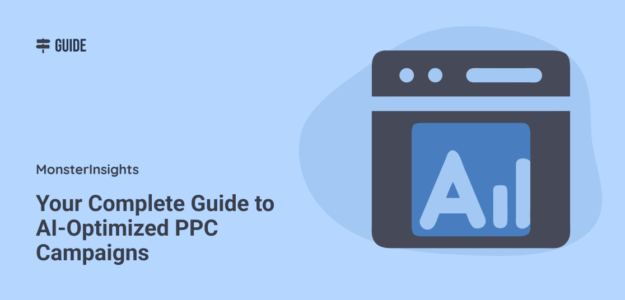Running PPC campaigns manually feels like trying to solve a 1,000-piece puzzle while blindfolded. You’re managing countless keywords, adjusting bids around the clock, and creating endless ad variations—all while your competitors seem to effortlessly outperform you. The answer is using AI-optimized PPC campaigns.
I’ve been managing PPC campaigns for over a decade, and I can tell you that artificial intelligence has completely changed the game. What used to take hours of manual work now happens automatically. Campaigns that struggled to break even are suddenly profitable.
In this article, I’ll show you exactly how AI works in PPC advertising, which tools deliver real results, and how to implement AI strategies that actually move the needle for your business.
Table of Contents
What is AI in PPC?
AI in PPC uses machine learning algorithms to automate and optimize your paid advertising campaigns. Instead of manually adjusting bids and targeting, AI analyzes massive amounts of data to make real-time decisions that improve your campaign performance.
Here’s what makes AI different from traditional PPC management:
Traditional PPC: You set bids based on educated guesses and historical data. You manually create ad variations and hope they perform well.
AI-Powered PPC: Algorithms analyze millions of data points instantly. They automatically adjust bids, create ad combinations, and target the most likely converters.
According to recent data, advertisers using AI-driven tools can improve their performance by 10-13%, and businesses earn an average of $2 for every $1 spent on Google Ads—a 200% ROI.
But there’s a catch. Many advertisers are using AI wrong, missing out on massive opportunities while wasting budget on ineffective automation.
7 Ways AI Transforms PPC Campaigns
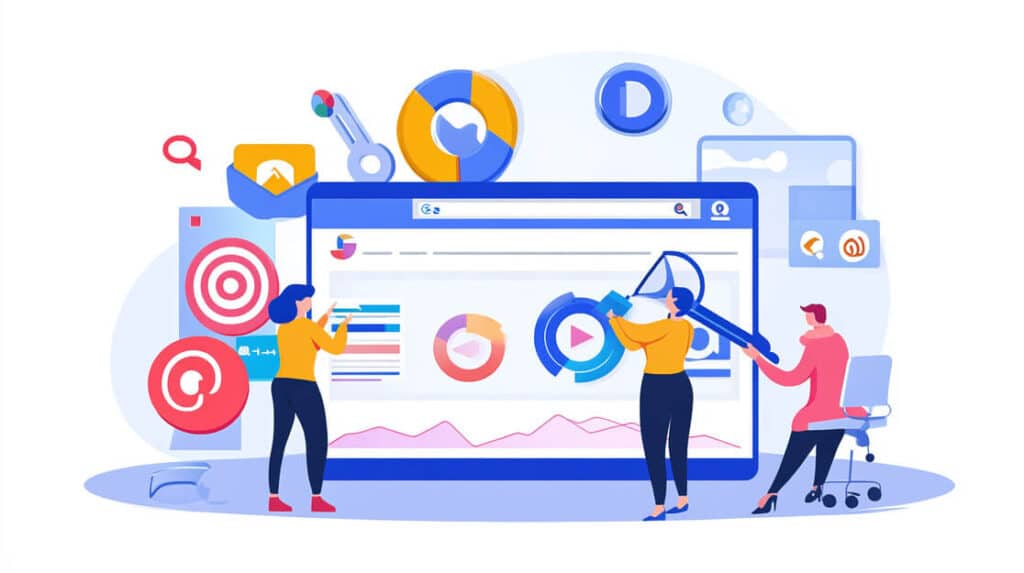
Let me walk you through the seven game-changing ways AI is revolutionizing PPC advertising.
1. Smarter Audience Targeting
Gone are the days of guessing who your ideal customer is. AI analyzes massive datasets—search history, online behavior, demographics—to pinpoint your most valuable audiences with surgical precision.
- Lookalike Audiences: AI identifies users who share characteristics with your existing customers, expanding your reach to potential buyers you’d never find manually.
- Predictive Modeling: By analyzing past behavior, AI predicts future actions. This means you can target users who are likely to convert even before they start actively searching.
Pro Tip: Start with small lookalike audiences (1-2% similarity) and gradually expand as you gather more data.
2. Automated Smart Bidding
Manual bidding feels like trying to juggle while riding a unicycle. AI handles the complexity for you.
Smart Bidding analyzes hundreds of signals—time of day, device, location, user behavior—to optimize bids in real-time. Google’s Smart Bidding strategies can increase conversion value by 14% compared to manual CPC bidding.
Here’s what AI considers when bidding:
- Device type and operating system
- Geographic location
- Time of day and day of week
- User’s search history
- Audience segments
- Ad placement
3. Dynamic Ad Creation
Creating dozens of ad variations manually is exhausting. AI generates and tests multiple ad combinations automatically.
- Responsive Search Ads (RSAs): Google’s AI tests different combinations of headlines and descriptions, automatically optimizing for the best-performing variations.
- Performance Max Campaigns: AI creates ads across multiple formats (text, image, video) and automatically serves the best-performing version to each audience.
I’ve seen campaigns increase click-through rates simply by letting AI handle ad variations instead of running static ads.
4. Enhanced Keyword Research
Traditional keyword research tools show you what keywords exist. AI-powered tools show you what keywords will perform.
AI analyzes search trends, user intent, and competitor data to uncover:
- Long-tail keywords with high conversion potential
- Negative keywords that waste budget
- Search intent patterns you’d never notice manually
- Seasonal keyword opportunities
5. Landing Page Optimization
Your landing page can make or break your campaign. AI analyzes visitor behavior to optimize conversion paths.
What AI optimizes:
- Headlines and copy
- Call-to-action placement and colors
- Form fields and length
- Page layout and images
- Load speed and mobile experience
Tools like Unbounce’s Smart Traffic automatically direct visitors to the landing page variant most likely to convert based on their characteristics.
6. Automated Campaign Management
AI handles the tedious tasks that eat up your time:
- Budget allocation across campaigns
- Bid adjustments based on performance
- Ad scheduling optimization
- Geographic targeting refinements
- Device bid modifiers
This frees you up to focus on strategy and creative development instead of micromanaging campaigns.
7. Advanced Analytics and Insights
According to HubSpot’s research, 30% of AI applications in marketing relate to analytics and data insights.
AI spots patterns in your data that humans miss:
- Conversion path analysis
- Attribution modeling
- Seasonal trends and anomalies
- Cross-channel performance insights
- Predictive forecasting
Instead of spending hours digging through reports, AI surfaces actionable insights automatically.
Essential AI Tools for PPC Success
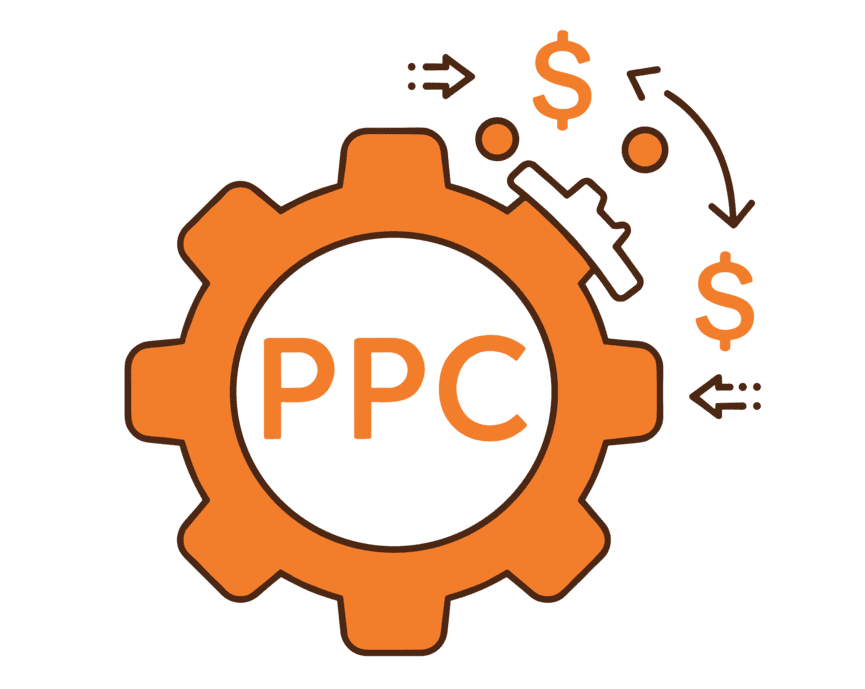
Based on my experience testing dozens of AI tools, here are the ones that actually deliver results:
Platform-Native AI Tools
Google Smart Bidding Strategies:
- Target CPA (Cost Per Acquisition)
- Target ROAS (Return on Ad Spend)
- Maximize Conversions
- Maximize Conversion Value
Google Performance Max: Automatically optimizes across Search, Shopping, Display, YouTube, and Discovery networks.
Meta Advantage+ Campaigns: AI-powered audience expansion and creative optimization for Facebook and Instagram ads.
Third-Party AI Tools
Content Creation:
- ChatGPT: Generate ad copy, headlines, and campaign ideas
- Claude: Create detailed ad strategies and audience personas
- Canva AI: Generate visual assets and video content
Campaign Management:
- Optmyzr: Advanced bid management and optimization
- Acquisio: Cross-platform campaign automation
- Albert.ai: Comprehensive AI advertising platform
Analytics and Insights:
- MonsterInsights: WordPress analytics with AI-powered insights
- Supermetrics: Automated data reporting and visualization
Pro Tip: Start with platform-native AI tools (they’re usually free) before investing in third-party solutions.
Track Your AI PPC Campaigns Properly with MonsterInsights
Here’s the problem: Most AI campaigns fail because conversion tracking is broken.
Without accurate data, even the smartest AI makes terrible decisions. I’ve seen Performance Max campaigns with “2% conversion rates” that were actually converting at 5%—they just weren’t tracking phone calls and form submissions.
MonsterInsights solves this in two clicks.
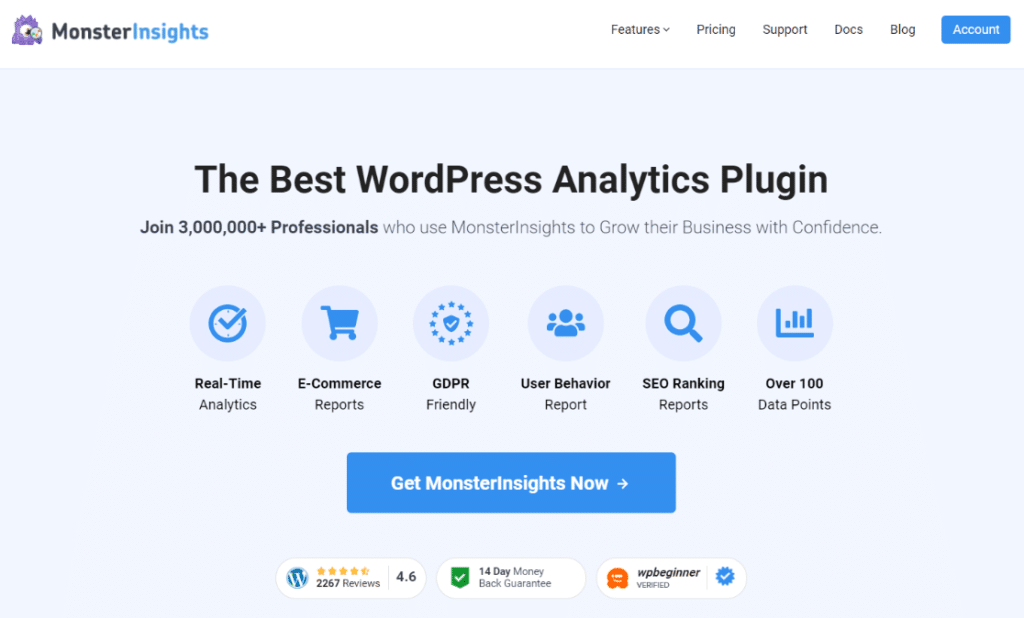
Instead of dealing with complex Google Ads conversion code, MonsterInsights lets you:
- Install conversion tracking without touching code
- Track all conversions (purchases, forms, calls, downloads)
- View PPC performance right in your WordPress dashboard
- Give AI complete data for better optimization
The result? Your AI campaigns optimize based on all your conversions, not just the ones Google can see.
Plus, MonsterInsights lets you combine analytics and AI inside one dashboard. Simply ask Conversations AI how your campaigns are doing and get instant responses:
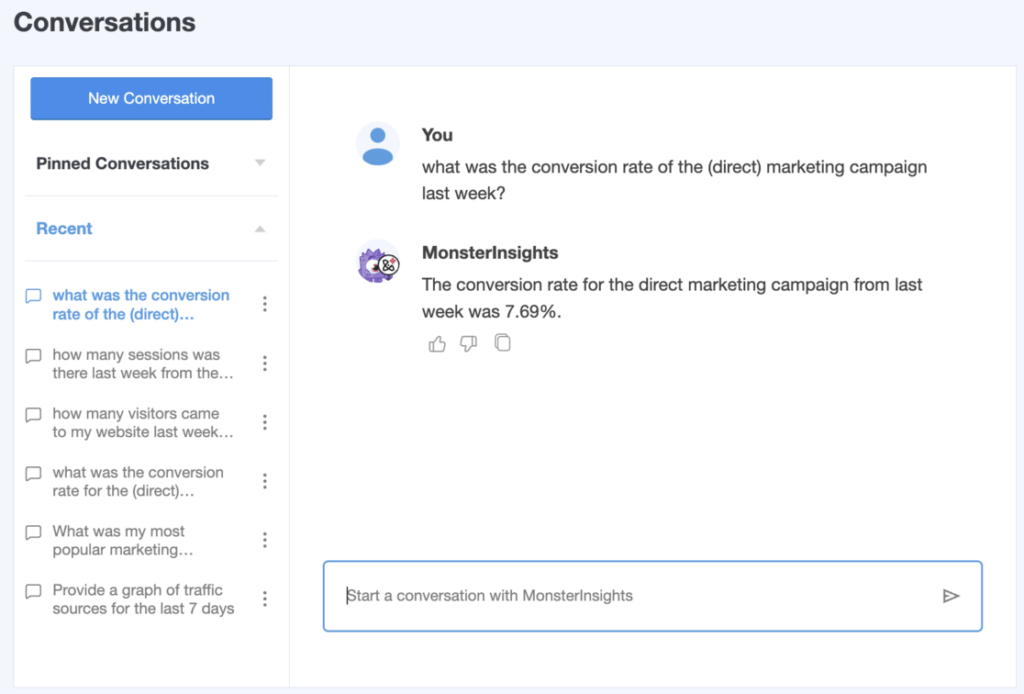
How to Implement AI in Your PPC Strategy
Here’s my step-by-step approach to implementing AI in your PPC campaigns:
AI PPC Implementation Timeline
Your 8-week roadmap to AI-powered campaigns
Foundation Setup
Weeks 1-2
Campaign Optimization
Weeks 3-4
Advanced Implementation
Month 2+
And that’s it!
I hope you enjoyed this article about running AI-optimized PPC campaigns. Be sure to check out these other resources:
PPC Campaign Optimization: Complete Guide to Boost Your ROI
PPC Competitor Analysis: How to Outperform Your Competition
Guide: Google Ads Reports in Google Analytics (GA4)
How to Track Meta (Facebook) Ads in Google Analytics Easily
Not using MonsterInsights yet? Get started today!
Finally, stay connected with us on YouTube for the latest Google Analytics and WordPress tips and tutorials.
FAQs:
How much does AI PPC optimization cost?
Platform-native AI features (Google Smart Bidding, Performance Max) are free. Third-party AI tools range from $100-$500+ monthly. Start with free platform features before investing in additional tools.
How long does it take to see AI PPC results?
Most AI optimization takes 2-3 weeks to show initial improvements. Full optimization typically occurs within 6-8 weeks, depending on your conversion volume and campaign complexity.
Can AI completely replace human PPC managers?
No. AI handles data processing and optimization, but humans are still needed for strategy, creative development, and interpreting results. The best approach combines AI automation with human oversight.
What’s the minimum budget needed for AI PPC campaigns?
You need at least 30 conversions per month for effective Smart Bidding. This typically requires $1,000-$3,000 monthly budget, depending on your industry’s cost per conversion.
Does AI work for all industries?
AI works best for industries with clear conversion tracking and sufficient data volume. Industries with longer sales cycles or offline conversions may need additional setup but can still benefit from AI optimization.
How do I know if my AI campaigns are working?
Monitor key metrics: conversion rate, cost per acquisition, return on ad spend, and Quality Score. AI campaigns should show gradual improvement over 4-6 weeks as the system learns your audience preferences.
